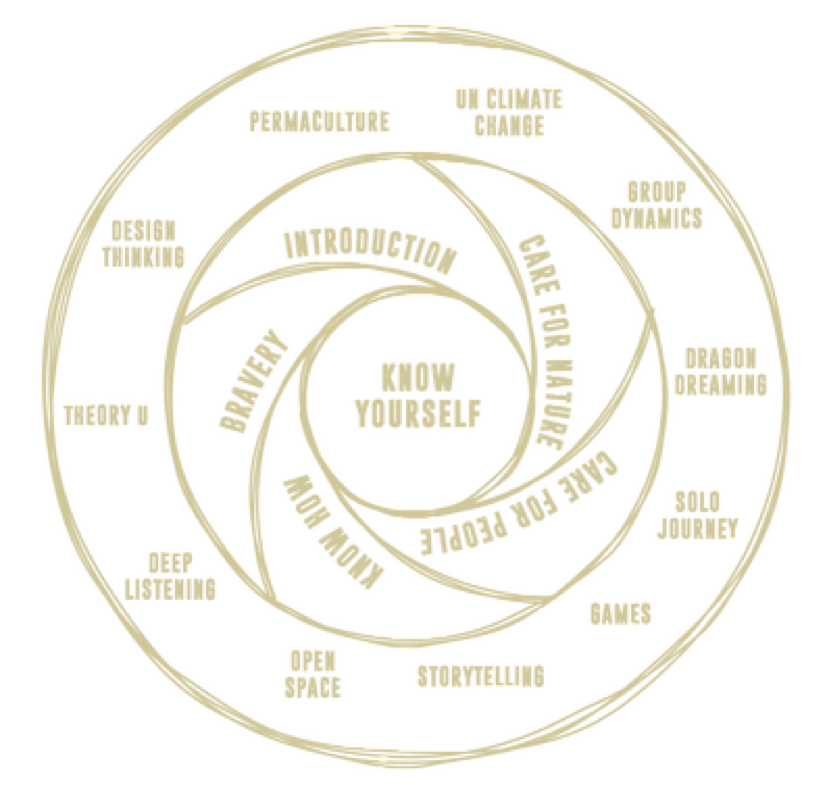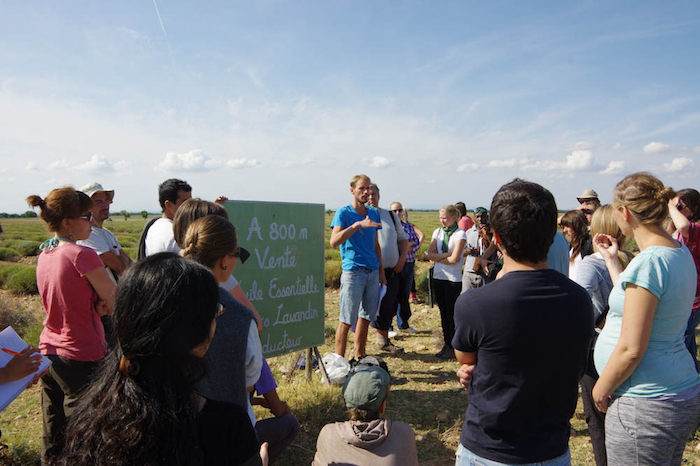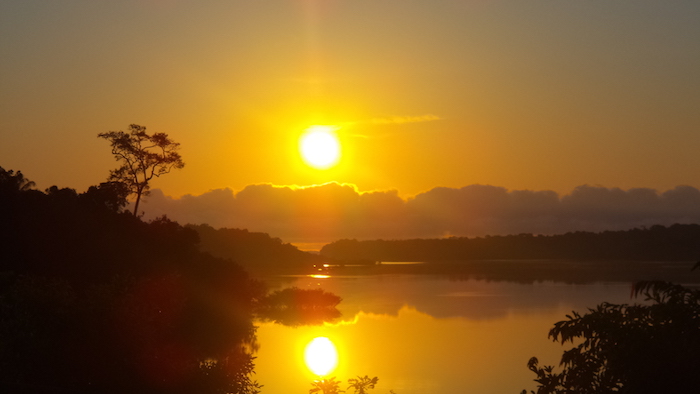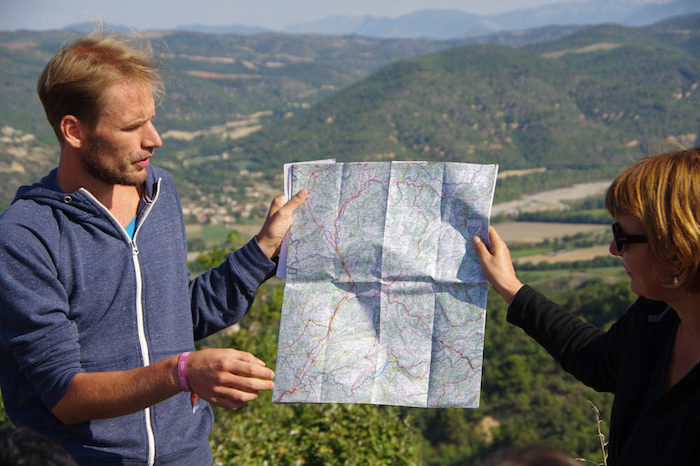Mobilising for sustainability: Summer schools fill gaps in sustainability science education
Over the next several weeks, Future Earth will be rolling out a blog series called “Mobilising for sustainability.” We’ll be highlighting people, programmes and technologies from around the world that seek to build new ways of bringing non-traditional groups, including young people, hackers and more, into sustainability research – and in generating new solutions for the challenges of today. We encourage you to share your own examples of efforts to create momentum toward global sustainability in the comments section below and on Facebook and Twitter.
Read other stories in this series about a 30-day challenge, hackathons and online education.
In 335 BC, the Greek philosopher Aristotle founded the Lyceum. It was known as a peripatetic school – from the Greek word peripatos, which means “to walk” – as Aristotle enjoyed strolling through the school’s tree-lined groves discussing nature, philosophy and the principles of mathematics with his students.
While the Lyceum is now no more, two summer schools are building on that same love of learning in nature to fill important gaps in traditional sustainability education. Taking sustainability science out of the classroom and into the heart of the Amazon rainforest or French Alps gives participants a chance to experience the issues they are so often implored to care about. This can lead to a more profound and prolonged learning experience; summer school participants talk about the changes these programmes catalyse in their own lives and the lives of others once they return home.
“Sustainability cannot be taught effectively in the abstract. We urgently need programs that not only foster a deep connection with nature but also deepen self-understanding. Exposure to challenging and diverse perspectives is essential to resolve current and future social, economic and environmental challenges,” says Thomas Lovejoy, Senior Fellow at the United Nations Foundation.
Bringing life to learning
Lovejoy is also a guest speaker at the Amazon Summer School – a program that attracts people from all ages, regions and backgrounds to live for 21 days in a riverside community in the Brazilian Amazon. The Amazon Summer School is structured around four modules that represent the different characteristics of sustainability leaders: care for nature, care for people, know-how and bravery. Students build “care for nature” by travelling through the Amazon on boats, swimming in the river, meditating in the forest, sleeping in hammocks, eating meals sourced from forest foods and listening to a hunter, a rubber tapper and community chiefs talk about their connection to the forest. “Care for people” comes from living with the Tumbira community, deeply listening to their hopes and challenges and building trust through exchanging skills. Participants range from dance teachers to entrepreneurs to students.

The Amazon Summer School developed its four pedalogical pillars in collaboration with Amazonian communities and others based on the core competencies that leaders in sustainability need. Image: Fundação Amazonas Sustentável (FAS)
Participants build “know-how” by taking classes with sustainability practitioners and community leaders on topics such as storytelling, carbon accounting, wildlife conservation, disposal of electronic products and the United Nations Sustainable Developmental Goals. And it takes bravery for participants to collaborate with communities to design solutions to local challenges – in 2014, the Tumbira community identified a need to better unify and internally communicate, so summer school participants helped them organise a movie night, football game and working bee at the local school.
“Our program creates empathic mindsets, awareness of cultural diversity and direct connection with nature. This is a powerful combination for personal and systemic sustainable change,” says Raquel Viggiani, co-founder of the summer school.
“Living with communities in the Amazon has taught me that changing things doesn’t come only by studying papers. You have to live it. You have to feel it to change it. That personal transformation and experience is at the core of the Amazon Summer School’s design,” she says.
The summer school is organised by the Amazonas Sustainable Foundation (FAS) and the Regional Sustainable Development Solutions Network (SDSN) for the Amazon. SDSN is a partner of Future Earth.
These transformative experiences happen not only in rainforests but in mountains, too. Over 9,000 kilometers away from Tumbira and nestled deep in the French Alps lies the village of Peyresq, which has been home to the ALTER-Net summer school for 11 years. The summer school brings together young graduate and post-graduate scientists from across the world for 10 days to learn about current issues in biodiversity and ecosystem services through thrice daily lectures and discussion groups. And they spend time collaborating on small-group projects.
“Most participants have not experienced working in a project so they don’t know the struggle of discussing an idea with someone from a different background. The project is really all about teaching communication and team work,” says Marie Vandewalle, a previous summer school student and now coordinator of the programme.
The mountain vistas and isolation are crucial to the programme’s success, says convenor Allan Watt. The scenery enables participants to leave their day-to-day worries behind them and be focused and inspired by the deep ecological questions put to them by speakers.

Students at the ALTER-Net summer programme listen in on a lecture. Photo: Allan Watt
“It’s a field of dreams – if you build it, they will come, and they will talk,” says Watt, who, when he’s not walking the Alps, is a scientist at Edinburgh’s Centre for Ecology and Hydrology.
While summer schools are normally targeted for high school and university students, both the Amazon and ALTER-Net summer schools believe intergenerational learning is a crucial part of sustainability education.
“When the concept of sustainability started in the 1970s, at the core was the idea that our generation does not have the right to leave a world that is worse than the one we inherited,” says João Rafael Brites, co-founder of the Amazon Summer School.
A legacy to be proud of
In many cases, these summer programmes give students a deeper understanding of what sustainability really is. That was true for Larry Brewer, a dance teacher in the United States, who attended Amazon Summer School in 2014.

A view of the Amazon Rainforest. Photo: Fundação Amazonas Sustentável (FAS)
“I learned that sustainability doesn't just apply to environmental issues or just the Amazon. It applies to every aspect of the human condition,” he said.
“Sustainable human development comes when those people that we see as powerless are given the power to change their life condition and address the needs that they themselves have identified. When we work to empower, meaning that we allow those who we are trying to help to take control of their lives, their families and their communities, we are promoting sustainability at the highest level.”
The Amazon Summer School employs several unusual methods to show students how to co-design solutions with communities. Dragon dreaming helps communities build visions of their future; theory U enables all participants to listen to each other and discover emerging trends; and open space allows people to self-organise around an agenda they create.
When Melissa, a winegrower in Oregon, discovered the “incredibly unique opportunity” that ALTER-Net summer school provides, “it was like a dream come true.” She’s been working to increase the biodiversity on agricultural lands in Oregon and was excited to meet others with similar interests.

Exploring the French Alps during the ALTER-Net summer programme. Photo: Allan Watt
“To do this work you need to know and understand that you are linked in the world to a group of brilliant, committed people. That knowledge gives you strength and power to carry on even when the good news is few and far between,” she says.
“When we get together we are reminded that we can leave our children a legacy that we are proud of. We can rebuild resilience and strength in the landscape.”
The scientists who give talks at the summer school value being away from their offices and having the freedom to share views without time pressure, Brites says.
“Many researchers do not spend that much time connecting with nature. You’re stuck in your office concerned about carbon targets or politics or funding and you don’t think about the deeper questions and connect.”
Two decades before he founded The Lyceum, Aristotle said: “In all things of nature, there is something of the marvelous.” The Amazon and ALTER-Net summer schools are not only building an international community of deep thinkers. They are also reviving this sense of marvel in nature.
“Perhaps that’s why they compare us to the school of Aristotle,” Vandewalle says.
DATE
July 11, 2016AUTHOR
Michelle KovacevicSHARE WITH YOUR NETWORK
RELATED POSTS
Spotlight on LMICs – Tired of Breathing in Pollutants? Time for Better Fuel Economy and Vehicle Standards
Future Earth Taipei Holds 2024 Annual Symposium
Spotlight on LMICs – The Future’s Juggernaut: Positioning Research as Anchors for Environmental Health